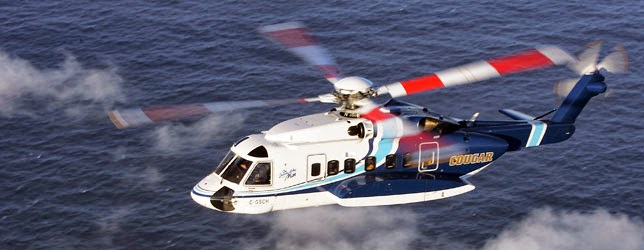
IBA Analyses Leasing Arena and Future of Automated Operations
After the completion of the GECAS/Milestone deal a few days ago, the question still remains, will there be more helicopter lessor mergers or is there still space for more in the market? Kim Seward, Aviation Analyst for IBA, comments “The sector as a whole is waiting with slightly baited breath to see how the oil price is going to impact the civil helicopter industry. The likely reality is that there is going to be some decrease in demand and, even though the rose tinted view on the market will go, we forecast that demand will plateau or only drop slightly. As a result of this, financial players in the helicopter arena might be wise to hold off on bold business decisions until the world energy demand and markets stabilise. It’s not a time to panic but, to answer the question, the space for additional lessors in the helicopter market is waning.”
When it comes to the future of the civilian helicopter industry, safety is very much the primary focus. Usman Ahmed, Senior Aviation Analyst for IBA, advises, “Despite making huge modifications to North Sea operations, the UK CAA is confident that there are still changes to be made. There is a big focus on attempting to reduce the likelihood of human error such as enhancing CRM (Crew Resource Management) and communication. But ultimately there is only a certain amount of human error that can be removed while there is still a human in the loop.”
So when will automation become as ubiquitous in the helicopter sector as it is in the fixed wing commercial industry? Usman continues, “Technology such as Sikorsky’s automated rig approach system has highlighted the fact that the removal of the human element of helicopter flying is fast approaching. Despite being very much ‘the norm’ in the airline industry, automated approach systems are a relatively new entity to the SOPs (Standard Operating Procedures) of rotary wing operators. With operators such as PHI already using the system, and with plans to retrofit the whole fleet, at what point do automated systems become the norm and not having it has a negative value impact?”
Earlier this year, Kaman, the US Army and Lockheed Martin collaborated to convert the oddly shaped K-MAX medium lift helicopter into an “unmanned aircraft system (UAS) capable of autonomous or remote controlled cargo delivery”. Although this is not strictly an independent operation, the pilot is just a little further away than is traditional, it does demonstrate the fact that pilots are becoming more and more removed.
Usman concludes, “One thing is for sure, the time of old-fashioned helicopter flying is fast becoming a thing of the past, with technology at the forefront of market demand. The first full fly-by-wire helicopter is almost upon us, and will be a significant milestone for the helicopter industry. As to the question of automation in the helicopter cockpit, it is certainly something that is not in the too distant future.”
When it comes to the future of the civilian helicopter industry, safety is very much the primary focus. Usman Ahmed, Senior Aviation Analyst for IBA, advises, “Despite making huge modifications to North Sea operations, the UK CAA is confident that there are still changes to be made. There is a big focus on attempting to reduce the likelihood of human error such as enhancing CRM (Crew Resource Management) and communication. But ultimately there is only a certain amount of human error that can be removed while there is still a human in the loop.”
So when will automation become as ubiquitous in the helicopter sector as it is in the fixed wing commercial industry? Usman continues, “Technology such as Sikorsky’s automated rig approach system has highlighted the fact that the removal of the human element of helicopter flying is fast approaching. Despite being very much ‘the norm’ in the airline industry, automated approach systems are a relatively new entity to the SOPs (Standard Operating Procedures) of rotary wing operators. With operators such as PHI already using the system, and with plans to retrofit the whole fleet, at what point do automated systems become the norm and not having it has a negative value impact?”
Earlier this year, Kaman, the US Army and Lockheed Martin collaborated to convert the oddly shaped K-MAX medium lift helicopter into an “unmanned aircraft system (UAS) capable of autonomous or remote controlled cargo delivery”. Although this is not strictly an independent operation, the pilot is just a little further away than is traditional, it does demonstrate the fact that pilots are becoming more and more removed.
Usman concludes, “One thing is for sure, the time of old-fashioned helicopter flying is fast becoming a thing of the past, with technology at the forefront of market demand. The first full fly-by-wire helicopter is almost upon us, and will be a significant milestone for the helicopter industry. As to the question of automation in the helicopter cockpit, it is certainly something that is not in the too distant future.”
http://www.ibagroup.com/







Comment